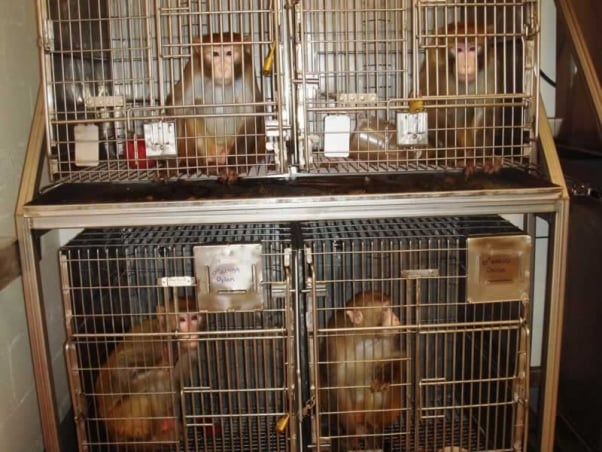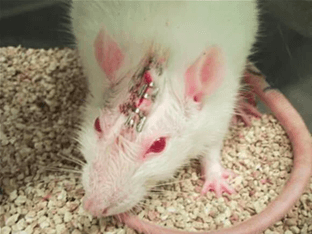PETA Challenges UC Davis to Make Good on its Pledge to Reduce or Replace Animals in Experiments
For Immediate Release:
December 9, 2024
Contact:
Brandi Pharris 202-483-7382
The numbers of animals being experimented on is going up, not down, and they are enormous. Today, PETA threw down a gauntlet at the feet of the University of California-Davis, challenging it to show proof that it is honoring its long, publicly-touted commitment to the “3Rs” principle of “replacing, reducing, and refining” the use of animals in experiments.
In a letter to university Chancellor Gary May, PETA reveals that despite UC Davis’s repeated claims of reducing the use of animals in experiments, the university used more than 292,665 mice, rats, fishes, birds, amphibians, and reptiles, as well as thousands of monkeys, dogs, cats, and other animals in experiments in 2023, according to an inventory report.


Images for illustrative purposes only.
The 3Rs refer to reducing animal use, replacing animals with animal-free methods, and refining experiments on animals to be less cruel. The concept was first published in 1959 and, as a theory, was enthusiastically embraced by animal experimenters worldwide, but UC Davis appears not to have put it in practice, as significant numbers of animals continue to be used in its laboratories. UC Davis received nearly $280 million in taxpayer funding in 2023—and about half that money bankrolled experiments on animals. Among these, macaque monkeys were locked into a room that was continually filled with tobacco smoke for seven-day periods to study the effects of secondhand smoke on vision loss. The primates were then killed so their organs could be dissected.
Experimenters at UC Davis have permanently separated baby monkeys from their mothers to study the impact of this early-life stress on hormone regulation. And others have subjected small titi monkeys to a series of invasive procedures ostensibly for the purpose of studying jealousy in monogamous animals.
“For decades, the 3Rs principles of refine, reduce and replace have been a convenient smokescreen for universities to hide behind—but their laboratories are prisons where sentient animals are deprived of a life, kept in metal boxes, and subjected to every foolish thing under the sun,” says PETA Vice President Dr. Alka Chandna. “We want Chancellor May to come clean and if there’s a real plan in place, make it public now or stop pretending.”
Studies show that 90 percent of basic research, most of which involves animals, fails to lead to effective treatments for humans, while 95 percent of new drugs that test safe and effective in animals later fail in humans. According to a poll published earlier this year, 80 to 85 percent of U.S. residents think experiments on animals should be phased out and tax dollars spent on non-animal methods instead. PETA is pushing universities to transition to superior, non-animal research methods. PETA—whose motto reads, in part, that “animals are not ours to experiment on”—points out that Every Animal Is Someone and offers free Empathy Kits for people who need a lesson in kindness. For more information, please visit PETA.org or follow PETA on X, Facebook, or Instagram.


